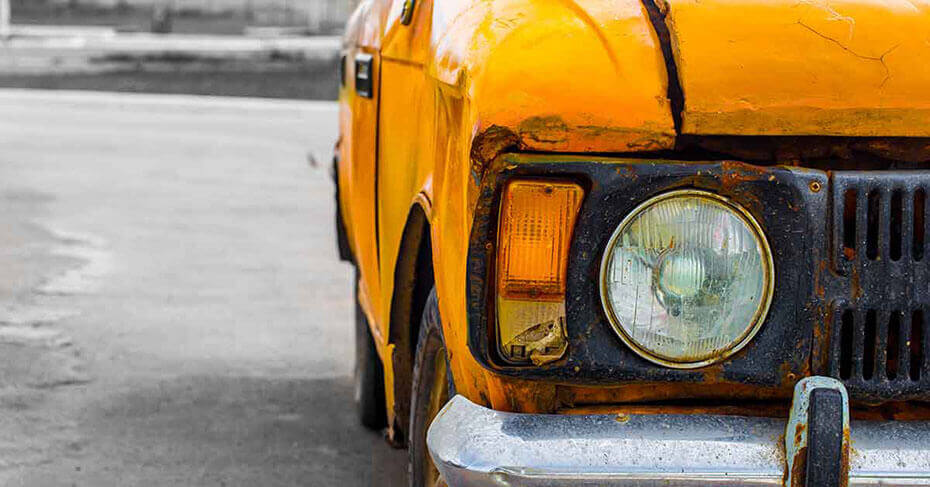
How to Prevent Your Car Paint From Becoming Oxidized

by Maddi Butler
Oxidized paint isn’t the most attractive look for your car, and it turns out that it isn’t the best for your wallet, either. Beyond the obvious cost it would take to repair the paint, you could also lose money when you go to sell it, too.
Oxidation occurs when chemicals in vehicle paint break down. Over time, paint can lose the oil content that gives your car that glossy finish. Exposure to heat and oxygen are the major culprits here; both will speed up the rate at which paint begins to oxidize.
You’ll know when paint is oxidizing because it will start to look dull, which is the first stage of oxidation. In the second stage, the color will begin to fade. It will no longer feel smooth, either—instead, as oxidation progresses, the paint will feel dusty or powdery. In the final stage of oxidation, you will notice a flaky texture, which is the clear coat blistering and chipping off.
Fortunately, you can prevent and even repair some oxidation with careful maintenance. By the time your car reaches the final stage of oxidation, there’s no repair aside from fully repainting your car, which isn’t a cheap fix. Repainting can run you anywhere from $1,000 to $7,000 depending on the paint and car.
The easiest thing you can do to prevent oxidation damage is to park your car in a shaded area or garage if you have one. This prevents the sun from beating down on your car, which can eventually cause damage.
Another way to prevent damage is to wash your car often—at least once a month, even if you’re just taking it through an automatic wash. If you wash your car by hand, use a soft mitt to get any dirt and pollen off. For tougher things like bugs, consider using a clay bar to remove them—it will be firm without damaging the paint. You can even put on a coat of wax to protect your car further and make sure it has that clean, glossy shine. Just be sure to fully dry your car after it’s washed—it will remove any minerals present in the water you used to wash it and prevent them from harming the paint.
If your paint is already damaged, you may be able to fix it without getting your car repainted. Some oxidation can be restored by having your car detailed. During a detailing session, a professional will thoroughly clean your car, buff it to remove any shallow imperfections, and add a coat of wax.
The buffing process can restore your paint before it comes to repainting, so this isn’t something to ignore. Regular cleaning can protect your paint and ensure your car maintains its best possible resale value over time, so it’s worth paying attention to!